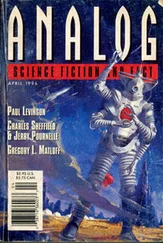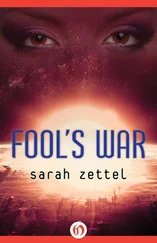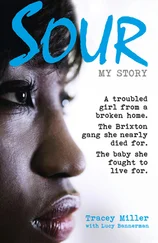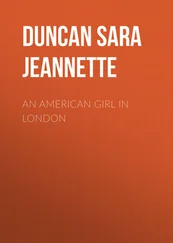Sarah Zettel - Dust girl
Здесь есть возможность читать онлайн «Sarah Zettel - Dust girl» весь текст электронной книги совершенно бесплатно (целиком полную версию без сокращений). В некоторых случаях можно слушать аудио, скачать через торрент в формате fb2 и присутствует краткое содержание. Жанр: Фэнтези, на английском языке. Описание произведения, (предисловие) а так же отзывы посетителей доступны на портале библиотеки ЛибКат.
- Название:Dust girl
- Автор:
- Жанр:
- Год:неизвестен
- ISBN:нет данных
- Рейтинг книги:3 / 5. Голосов: 1
-
Избранное:Добавить в избранное
- Отзывы:
-
Ваша оценка:
- 60
- 1
- 2
- 3
- 4
- 5
Dust girl: краткое содержание, описание и аннотация
Предлагаем к чтению аннотацию, описание, краткое содержание или предисловие (зависит от того, что написал сам автор книги «Dust girl»). Если вы не нашли необходимую информацию о книге — напишите в комментариях, мы постараемся отыскать её.
Dust girl — читать онлайн бесплатно полную книгу (весь текст) целиком
Ниже представлен текст книги, разбитый по страницам. Система сохранения места последней прочитанной страницы, позволяет с удобством читать онлайн бесплатно книгу «Dust girl», без необходимости каждый раз заново искать на чём Вы остановились. Поставьте закладку, и сможете в любой момент перейти на страницу, на которой закончили чтение.
Интервал:
Закладка:
The battered metal bread box on the counter held treasure: two long, squared-off Pullman loaves, still mostly fresh and only a little dusty. I wrapped them in brown paper from the big roll bolted to the counter and added the bread to my rows of salvaged canned goods. For a wonder, the ham and salami hanging over the busted-up meat case were untouched.
They only took the fresh , my brain said.
Shut up , I said back to my brain.
But the barrel of salt pork hadn’t been touched either. I wrapped up some slabs of that too and tried not to feel my hands shaking. I pulled my nerve together and headed down into the cellar. More luck. There was homemade jam on the shelf, and potatoes, onions, and carrots in the bins. Maybe Mr. Van Iykes had been able to chase off whoever robbed the place before they made it to the cellar. Maybe he and Sheriff Davis had gone to round up the robbers and were caught out by the storm and they’d be back soon. They’d be glad to see the money then.
That idea made me feel better as I helped myself to what I could carry of vegetables and preserves and took it all back upstairs.
Jack dragged a wheelbarrow inside and started loading groceries. He must have been dog-tired, but he’d said he would work and he was. That spoke better for him than any easy smile. Maybe this would be all right after all.
While Jack tied a tarp over the barrow, I grabbed the pad of order blanks from the drawer under the cash register and added up the prices for all we’d taken, making guesses on the jam and vegetables. The total was fifteen dollars and eleven cents. I punched the keys on the register. The bells chimed, and the cash drawer shot open.
I stared.
There was all of fifteen cents in the drawer, along with a stack of IOUs.
I’d always thought the Van Iykeses had plenty of money. After all, they ran the only store left in Slow Run. But nobody in the whole town had money to buy anything, so I guess Mr. Van Iykes did what the rest of us did, take the promises and hope.
I felt bad about leaving another IOU, but I didn’t know what else to do. So at the bottom of the order blank I wrote:
Mr. Van Iykes:
I needed some groceries for guests at the Imperial. I will come by tomorrow and pay you for what I took and bring your barrow back.
Callie
Writing that down helped me believe the Van Iykeses would be back tomorrow to see my promise bundled with all the others. I shut the order blank in the drawer so it wouldn’t blow away. The register chimed as if for an actual sale. It didn’t know the difference.
“Let’s go,” I said to Jack. I didn’t want to stay there with the bones and broken glass a minute longer. I wanted to be back in my own home, where there was still a chance I could do something to make a difference.
Jack looked at me like he understood, grabbed up the handles of the wheelbarrow, and followed me out the back door into the storm.
7
“Ah, there you are, Callie! We were beginning to wonder.”
Mrs. Hopper sailed into the Imperial’s main kitchen while Jack and I were unloading the last of the groceries. We were both streaked with sweat and grime. It had been impossible to push the barrow through the blow dust. We’d had to drag it behind us like a couple of mules hitched to a plow.
“Why, who’s this?” Mrs. Hopper tilted her chin down so we could just see the green flash of her eyes above the rims of her tinted glasses.
“Jack Holland, ma’am,” I told her. “He’s here to help out while you stay.” Which was true as far as it went. The Hoppers didn’t need to know where or how I’d found him.
“Charming!” She held out her hand and smiled. Her teeth were very straight and very white. Jack blushed and shook her hand. “Mr. Hopper will be pleased. He believes in rewarding hard work. Now”-she grew brisk-“as my children made clear before you left, I’m afraid we’re all just a tiny bit hungry. Callie, you’ll put together some tea for us, won’t you?”
Tea? I hadn’t thought about tea. It was going to be hard enough to pull together a dinner for so many, even with Jack’s help.
“No hurry, of course,” Mrs. Hopper said in a tone that meant just the opposite. “But as soon as you can.”
“Yes, ma’am.”
She beamed at me and sailed out through the swinging doors.
Tea. I looked at the heap of groceries salvaged from Van Iykes’s. How was I going to make them tea?
“She’s pretty.” Jack hooked a tall stool out from under the counter and sat down a little too hard.
That woke me up. I planted my hands on my hips and glared at him. “She’s a guest. So don’t go making a fool out of yourself.” Then I realized he wouldn’t do me any good starved and thirsty, so I filled a glass from the sink and shoved it at him.
“Who are you calling a fool?” Jack gulped the water down.
“You, if you go making eyes at married guests.” I plucked the salami out of the crate and a sharp knife out of a drawer and passed him both.
“I wasn’t making eyes!” He snatched up the salami and swiped a slice off the end.
“You were! You’re red as a beet.”
“I am not,” he muttered around his mouthful of hard sausage.
“Suit yourself.” I shrugged and turned to face the kitchen.
Except for the Moonlight Room, the kitchen was the biggest room in the Imperial. The two cast-iron stoves sat solidly in the middle of it all, with the bake ovens underneath and the warming ovens on the side. In the corner, the housekeeper’s desk sat under the hook board where we hung the spare keys.
I started filling the kettle and a couple of big pots. “First thing to do when you’re cooking is get the water boiling,” Mama had told me. “It saves time and you’ll always find a use for it.”
I remembered playing with pots and pans in here when I was really little, while Mama and the cooks worked, filling the air with the best smells. Gradually, the cooks drifted away and it was just Mama, and then even that ended. Now it was just me. Well, and Jack, but he was just wolfing salami, and I couldn’t really count him yet.
“You’ll get a stomachache,” I said, shaking out the match I’d used to light one of the burners on the right-hand stove.
“Already got one,” he told me around another mouthful. “You can pick ’em up for free on the road. Thought I’d see if store-bought is better quality.”
I peeked in the tin box labeled TEA and found there was actually some tea in it. That was something. “How long you been on the bum?”
He shrugged. “Not so long. I’m headed to Los Angeles.”
“Everybody’s headed to California.” I laid out the vegetables on one of the marble counters and wiped a bread knife clean with a dish towel. I threw the towel over my shoulder to keep it handy. “The place must be full up by now.”
“Of people going to work the crops, sure. But that’s not me. I’m going to be a newspaper writer.”
“You are?”
“Sure.” He sat up straighter. “I worked the paper at school. Won a prize for it and everything. They take boys on at newspapers in big cities. Let ’em work as copyboys and learn the trade. Sometimes even for pay, but I wouldn’t mind doing it for free. I could get another job in a city like that. I can do anything. You’ll see.”
I looked at him, sitting on that stool, in clothes that were too small and all tore up, cutting hunks off a salami he got as charity, and at the same time talking about how he could do anything, like nothing bad had ever happened to him. Jack Holland was either really brave or completely cracked.
That seemed too big a question to try to answer right then, so I wiped the dust off another section of counter and started slicing up the Pullman loaf instead. Jam sandwiches sounded like something you’d have with tea, didn’t it? And deviled ham.
Читать дальшеИнтервал:
Закладка:
Похожие книги на «Dust girl»
Представляем Вашему вниманию похожие книги на «Dust girl» списком для выбора. Мы отобрали схожую по названию и смыслу литературу в надежде предоставить читателям больше вариантов отыскать новые, интересные, ещё непрочитанные произведения.
Обсуждение, отзывы о книге «Dust girl» и просто собственные мнения читателей. Оставьте ваши комментарии, напишите, что Вы думаете о произведении, его смысле или главных героях. Укажите что конкретно понравилось, а что нет, и почему Вы так считаете.












